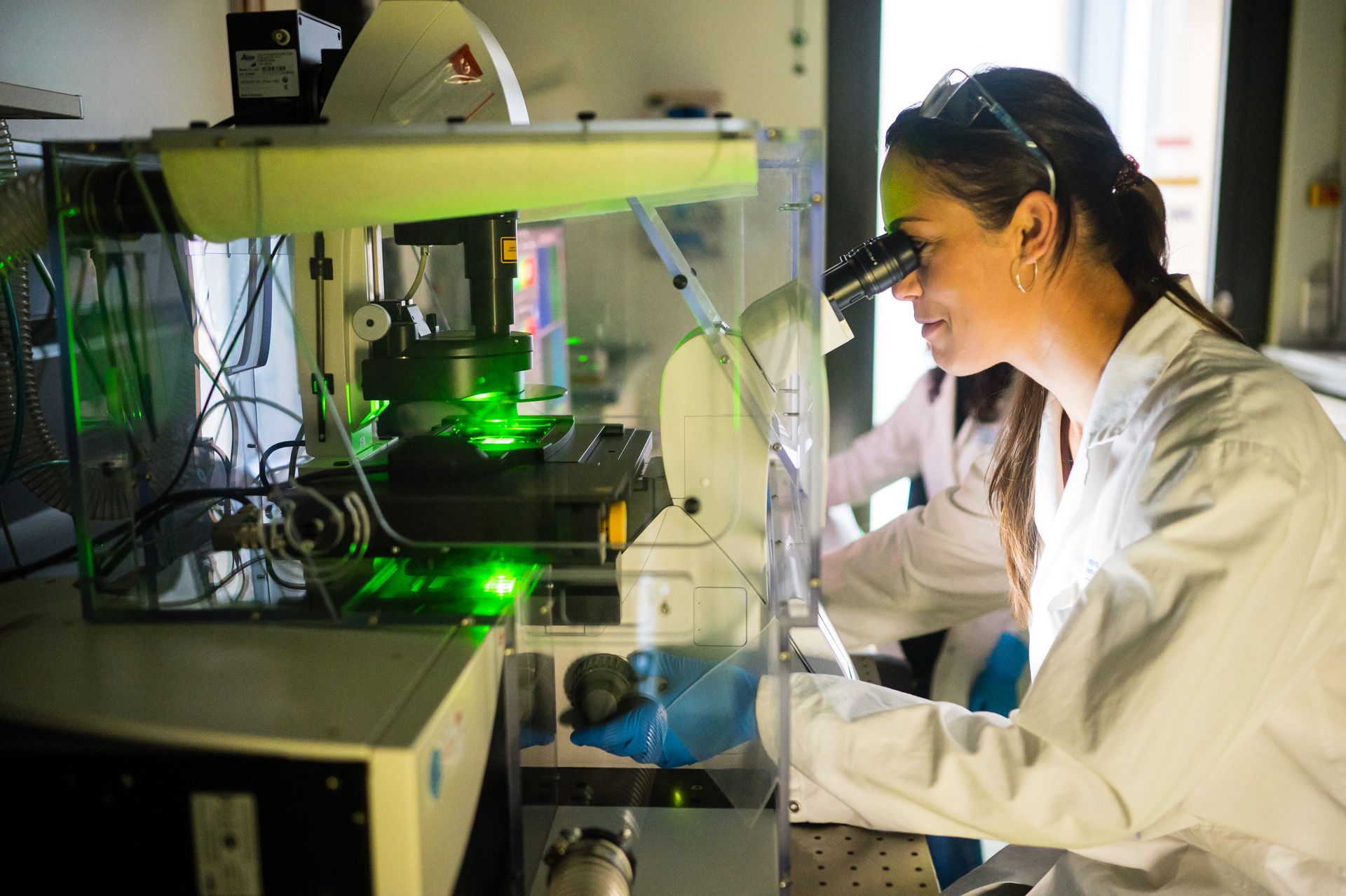
Human-Microbe Systems Bioinformatics
Jun Prof Dr Alexey Gurevich
The human body encompasses fewer human cells than microbes. They constantly interact with each other and the host and greatly affect an individual's health and well-being. In our group, we develop and apply state-of-the-art bioinformatics software to study the human-microbe systems and aim to discover natural products involved in communication between the two realms.
Our research and approach
Natural products are a promising source of new pharmaceuticals, such as anti-infectives. They also mediate human-microbe and microbe-microbe interactions and could serve clinicians as biomarkers of health and disease. Breakthroughs in omics technologies enabled the rapid acquisition of voluminous data on natural products and their producers, but the computational analysis and interpretation of these data remain a bottleneck.
We aim to turn natural product discovery into a high-throughput technology by developing and applying specialized computational tools. The close interaction with computer scientists and natural product experts makes the created software robust, efficient, and genuinely suitable for the local and international research community. The access to unique single- and multi-omics datasets available within collaborative projects represents a gold mine for tools’ validation and fine-tuning and ultimately leads to biomedically important discoveries and enhanced understanding of the complex human-microbe systems.
Team members

Jun Prof Dr Alexey Gurevich
Group Leader

Dr Azat Tagirdzhanov
Postdoc

Aleksandra Kushnareva
PhD Student

Ilia Olkhovskii
PhD Student
Research projects
Multi-omics approaches to natural products discovery
Integration of data from several omics technologies has great potential in natural product research. Recently, we utilized paired genomics and metabolomics datasets for the high-throughput discovery of ribosomal (RiPPs) and nonribosomal (NRPs) peptides. We work on extending this effort to other classes of natural products. We also consider adding more omics levels (transcriptomics, proteomics, metagenomics) to make the tools more specific and sensitive.
Tracking of biosynthetic gene clusters
Biosynthetic gene clusters (BGCs) are responsible for the production of natural products and thus play a vital role in shaping microbial ecosystems and host-microbe interactions.
We predict BGCs from various microbiomes with genome mining software, correlate BGC abundance with metadata, such as the health state of the associated hosts, and identify the most clinically-important BGCs. To simplify further experimental validation, we develop computational methods for linking BGCs to their tentative final products.
Establishing the standards in metagenomics data analysis
Metagenomic sequencing enables the studying of complex microbiomes. However, metagenomic data interpretation requires multi-step computational pipelines involving dozens of tools, such as short/long read assemblers, binners, and taxonomic classifiers. We participate in the Critical Assessment of Metagenome Interpretation (CAMI) initiative that provides researchers and software developers with guidelines and best practices in metagenomic data analysis. In particular, we develop and maintain metaQUAST and QUAST, the leading software for (meta)genome assembly evaluation.
Publications
2023
On the Transformation of LL(k)-linear to LL(1)-linear Grammars
Olkhovsky I, Okhotin A (2023)
Theory Comput Syst 67 (2): 234-262DOI: 10.1007/s00224-022-10108-6
HypoRiPPAtlas as an Atlas of hypothetical natural products for mass spectrometry database search
Lee Y, Guler M, Chigumba D, Wang S, Mittal N, Miller C, Krummenacher B, Liu H, Cao L, Kannan A, …, Kersten R, Mohimani H (2023)
Nat Commun 14 (1)DOI: 10.1038/s41467-023-39905-4
ABC-HuMi: the Atlas of Biosynthetic Gene Clusters in the Human Microbiome
Hirsch P, Tagirdzhanov A, Kushnareva A, Olkhovskii I, Graf S, Schmartz G, Hegemann J, Bozhüyük K, Müller R, Keller A, Gurevich A (2023)
Nucleic Acids ResDOI: 10.1093/nar/gkad1086
WebQUAST: online evaluation of genome assemblies
Mikheenko A, Saveliev V, Hirsch P, Gurevich A (2023)
Nucleic Acids Res 51 (W1): 601-DOI: 10.1093/nar/gkad406
2022
NPOmix: A machine learning classifier to connect mass spectrometry fragmentation data to biosynthetic gene clusters
Leão T, Wang M, Da Silva R, Gurevich A, Bauermeister A, Gomes P, Brejnrod A, Glukhov E, Aron A, Louwen J, …, Bandeira N, Dorrestein P (2022)
PNAS nexus 1 (5)DOI: 10.1093/pnasnexus/pgac257
NPvis: An Interactive Visualizer of Peptidic Natural Product-MS/MS Matches
Kunyavskaya O, Mikheenko A, Gurevich A (2022)
Metabolites 12 (8)DOI: 10.3390/metabo12080706
